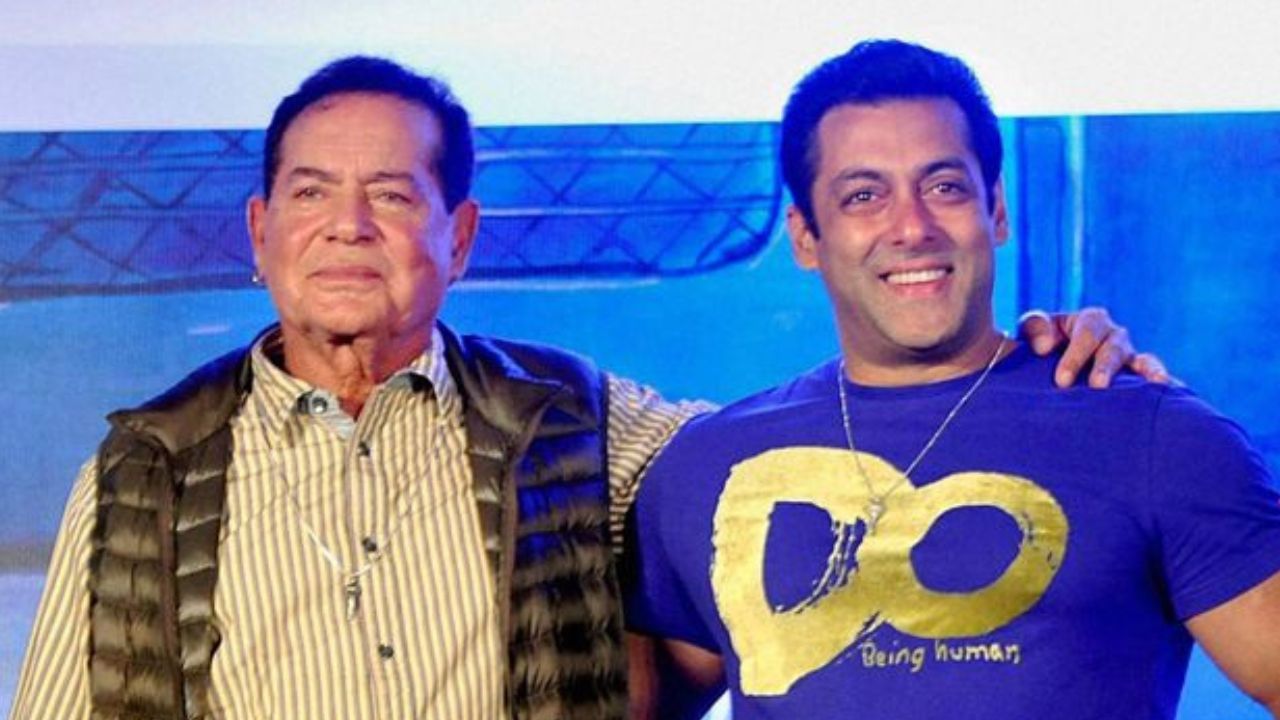Mumbai: I called him this morning. His laughter was unchanged.
It was the same deep, uninhibited laughter I first heard during the making of Naam — a sound that travelled across the years and reminded me that some men remain untouched by time. Salim Khan turned ninety today. To the world, he is the father of a superstar. To me, he is the last Mughal of Bollywood.
When he broke away from Javed Saab and walked into Naam, he was a man in search of a space worthy of his own voice. It was that fire — that almost youthful hunger — which gave me my first commercial blockbuster. A film that hurled both of us to the top of the heap in the 80s. What the world celebrates as a “hit” was, for me, a masterclass in courage, craft, and moral clarity.
Salim Saab always said that screenwriting cannot be divorced from the moral compass that has guided the human race for centuries. He knows the Mahabharata — every character, every pause — with a depth that few outside the world of scriptures possess. A CEO of a major streaming platform once told me that while planning a big-budget Mahabharata, someone whispered, “Go to Salim Khan — let him be the locomotive.” And he did agree, on the extraordinary condition that he would take no money for it.
“Whatever I give,” he said, “will not be mine. It belongs to the treasure box of the human race. I will only be privileged to speak it aloud.”
The CEO was stunned. I wasn’t. I had already seen that largeness.
Salim Khan’s home was an open house. You could walk in at any hour — filmmakers, stars, strugglers — to eat, laugh, talk, and leave without ceremony. I was still a young man who could barely afford a drink. He poured me Black Label whisky — the rarest of the rare back then — and treated me not as a struggler but as a fellow traveller.
When he watched Janam, my autobiographical film, he turned to me and said, “Mahesh, you are a better writer than me.” I don’t agree with him. But I know the generosity it took to say that. He told me often that his best working relationship was with me. I believe him.
I once confessed to him, “You know what I really want as a director? Just one person to stay awake when I sleep — thinking about my film.” He looked at me, and without hesitation said, “I promise to do that.” And he did.
Night after night, as the clock edged towards midnight, after a few pegs, he would call. He would enact scenes over the phone like an actor possessed. I would react. Together we would refine them. He was a complete writer — dramatist, performer, philosopher.
The iconic confrontation scene in Naam, where Sanjay Dutt doesn’t raise a finger yet defeats his adversaries, became a legend. Even Rajinikanth called me and said, “What a scene, Mahesh.” I told him the truth — it was Salim Khan.
Today, when I asked if he was 89 or 90, he said, “I am 90. Born in 1935. Now I only take singles to reach a hundred.” And he laughed. That laughter again.
He watched my interview with Arbaaz and called to say, “This is the most honest interview I’ve ever seen.” He insisted I view it with him. I watched reluctantly, shyly. When it ended, he sat there — clapping like a child delighted by truth.
When I thanked him today, he quietly said, “People come and go. All my friends have come and gone. I am still here. What remains are the pictures.” A pause. “Nothing changes. People just come and go… and the breath goes on.”
I first saw him when I was a boy in my father’s home on Cattle Road, Mahim. He had come to see my father for Sher Shah Suri. I had no idea then that this man would one day open his heart, his home, his whisky, and his genius to me — and leave fingerprints on my life.
Ninety years young today.
Thank you, Salim Saab — for being who you are and for dazzling my journey with your presence. They don’t make men like you anymore.
Happy birthday, sir.
